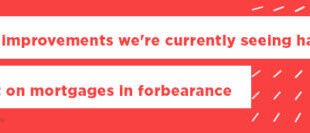
Right now, there are two sides to the economy: Wall Street and everything else. Big tech stocks continue to grow and have pushed the S&P 500 to a record high this week. The Nasdaq also hit all-time highs thanks to FAANG stocks. Facebook, Alphabet, Amazon, Netflix and Google dominate the equity landscape. Alphabet (Apple) was up 3% as of Thursday and became the first publicly traded United States company with a market valuation of $ 2 trillion.
But tech stock performance can’t overcome the weight of the pandemic. This week the Labor Department reported more than 1.1 million Americans filed initial unemployment claims. Continuing claims declined by more than 600,000 to bring the total below 15 million.
Remember, this is the fourth week without the extra $ 600 per week stipend for unemployment insurance issued by the federal government. So far, 11 states have been approved to provide a $ 300 stipend in accordance with President Trump’s recent executive orders, but there is uncertainty about when that payout will occur. We must also keep in mind that independent contractors are no longer covered under unemployment benefits. That was a stipulation of the CARES Act, which expired in July.
The disappointing numbers were evident in the markets as investors put money back into the relative safety of government bonds. The 10-year Treasury note yield dropped about three basis points to 0.644%. Early Friday morning, futures pointed to a negative start across equities.
Rates inch up, but inventory turning positive
The average mortgage rate ticked up this week, thanks in large part to the Federal Housing Finance Authority’s 50 basis point “adverse market” fee on refinance loans. Granted, when you inch up from record lows, rates are still incredibly low. Freddie Mac’s 30-year fixed-rate mortgage average is still just below 3%, sitting at 2.99%.
Week-over-week mortgage application volume was down this week, according to the Mortgage Bankers Association’s weekly survey. However, annually, refinances and purchases are up 38% and 27%, respectively.
In the MBA’s news release this week, the MBA’s Vice President of Economic and Industry Forecasting Joel Kan said, “Positive economic data reported last week on retail sales, as well as a large U.S. Treasury auction, drove mortgage rates to their highest level in two weeks. The rise in rates dampened refinance activity, but purchase applications continued their strong run and were 27 percent higher than a year ago – the third straight month of year-over-year increases.”
He continued by saying, “Conventional purchase applications drove last week’s increase, while applications for government loans decreased. The housing market remains a bright spot in the current economic recovery and these results, combined with July data on housing starts and homebuilder optimism, suggest that housing supply could be increasing to better meet the strong demand for buying a home.”
The July data on housing starts was certainly a bright spot for an industry dealing with a dearth of inventory. The Census Bureau’s release on new construction shows July’s new construction numbers were up 22.6% monthly and 23.4% annually. Increasing supply during an intense period of demand could potentially create more balance in the market for future homebuyers.
Something to keep in mind as we get deeper into the year is the potential for mortgage delinquencies. The MBA’s latest delinquency survey shows “the delinquency rate for mortgage loans on one-to-four-unit residential properties increased to a seasonally adjusted rate of 8.22 percent of all loans outstanding.”
When you break out the data, the delinquency rate on FHA loans was a staggering 15.65%, the highest in the history of the survey dating back to 1979. This rate does not include homes in the process of foreclosure. The FHA did extend the foreclosure moratorium through the end of the year, but that only covers about 8.1 million Americans. The federal moratorium on foreclosures and evictions expired in July.
Of Note:
- The Federal Reserve will not enact yield curve control and dismissed the idea of utilizing negative interest rates.
- Fed minutes noted that the pandemic “would weigh heavily on economic activity, employment, and inflation in the near term.”
- The next Federal Open Market Committee meeting will be virtual and streamed live to the public for the first time ever.
- Redfin: Median sale price for luxury homes in the U.S. rose 1.2% year-over-year, to $ 825,000.



